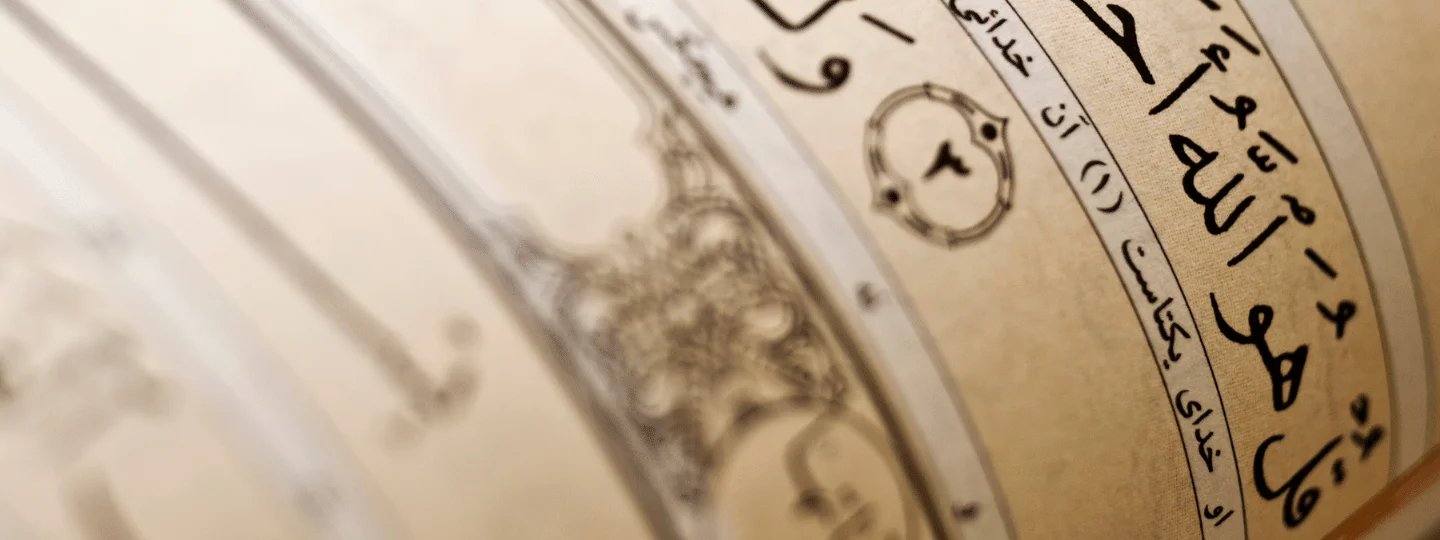Some people say you can recite Surah Ikhlaas three times if you do not know Dua Qunoot, they quote Imam Ali al-Qari for this. Is this correct?
Quran
Hadith
Islamic Text
This is incorrect. You must make a Dua in Witr and Surah Ikhlas is not a Dua.
Imam Ali al-Qari may have made a general statement regarding Dhikr and Dua being similar. However, when he addressed the specific issue of Qunoot in Witr, he said the following:
وَمَنْ لَا يُحْسِنُ الْقُنُوتَ يَقُولُ: {رَبَّنَا آتِنَا فِي الدُّنْيَا حَسَنَةً وَفِي الْآخِرَةِ حَسَنَةً وَقِنَا عَذَابَ النَّارِ} [البقرة: 201]، وَقَالَ أَبُو اللَّيْثِ: يَقُولُ: اللَّهُمَّ اغْفِرْ لِي وَيُكَرِّرُ ثَلَاثًا. (مرقاة المفاتيح شرح مشكاة المصابيح)
And whoever does not know the Qunoot (Dua), can recite, Our Lord grant us good in the Dunya and in the Afterlife, and save us from the fire. (Surah al-Baqarah, 201). And Abu Layth said, he can repeat, O Allah forgive me (اللَّهُمَّ اغْفِرْ لِي), three times. (Mirqaat al-Mafaateeh).
Many other authoritative Hanafi scholars mentioned similar things, none of them suggested reciting Surah Ikhlas three times.
ومن لا يحسن القنوت يقول ربنا آتنا في الدنيا حسنة إلخ قال الفقيه أبو الليث رحمه الله تعالى يقول اللهم اغفر لي ويكرر ثلاثاً (فتاوى قاضيخان)
And whoever does not know the Qunoot (Dua), can recite, Our Lord grant us good in the Dunya, to the end of it. And Abu Layth (May Allah Most High have mercy upon him) said, he can repeat, O Allah forgive me (اللَّهُمَّ اغْفِرْ لِي), three times. (Imam Qadi Khan, Fataawa Qadi Khan).
وَمَنْ لَا يُحْسِنُ الْقُنُوتَ يَقُولُ: {رَبَّنَا آتِنَا فِي الدُّنْيَا حَسَنَةً وَفِي الآخِرَةِ حَسَنَةً وَقِنَا عَذَابَ النَّارِ} [البقرة: 201] وَقَالَ أَبُو اللَّيْثِ يَقُولُ اللَّهُمَّ اغْفِرْ لِي وَيُكَرِّرُ ثَلَاثًا (فتح القدير)
And whoever does not know the Qunoot (Dua), can recite, Our Lord grant us good in the Dunya and in the Afterlife, and save us from the fire. (Surah al-Baqarah, 201). And Abu Layth said, he can repeat, O Allah forgive me (اللَّهُمَّ اغْفِرْ لِي), three times. (Imam Ibn al-Humaam, Fath al-Qader).
وَمَنْ لَا يُحْسِنُ الْقُنُوتَ يَقُولُ {رَبَّنَا آتِنَا فِي الدُّنْيَا حَسَنَةً} [البقرة: 201] الْآيَةَ. وَقَالَ أَبُو اللَّيْثِ يَقُولُ: اللَّهُمَّ اغْفِرْ لِي يُكَرِّرُهَا ثَلَاثًا، وَقِيلَ يَقُولُ: يَا رَبِّ ثَلَاثًا، ذَكَرَهُ فِي الذَّخِيرَةِ. اهـ. (رد المحتار على الدر المختار)
And whoever does not know the Qunoot (Dua), can recite, Our Lord grant us good in the Dunya (Surah al-Baqarah, 201). And Abu Layth said, he can repeat, O Allah forgive me (اللَّهُمَّ اغْفِرْ لِي), three times. And it has been said that he recites ‘O Lord’ three times, he mentioned it in al-Dhakheerah. (Imam Ibn Abideen, Radd al-Muhtaar).
Further to this, Imam Ibn Abideen explained in his Hashiyah that Qunoot refers to Dua. Therefore not only do we have multiple authoritative Hanafi Imams informing us, that Qunoot should be replaced by another supplication if one does not know it, but we have a clear explanation of the reason for it. Qunoot is a Dua so if one does not know it, he should make a different Dua.
وَاخْتَلَفَ الْمَشَايِخُ فِي حَقِيقَةِ الْقُنُوتِ الَّذِي هُوَ وَاجِبٌ عِنْدَهُ؛ فَنَقَلَ فِي الْمُجْتَبَى أَنَّهُ طُولُ الْقِيَامِ دُونَ الدُّعَاءِ، وَفِي الْفَتَاوَى الصُّغْرَى الْعَكْسُ، وَيَنْبَغِي تَصْحِيحُهُ بَحْرٌ. (رد المحتار على الدر المختار)
The scholars differed with regards to what is meant by Qunoot, which is Waajib. In al-Mujtaba he said, it refers to lengthening the standing and not Dua (supplication). In al-Fatawaa al-Sughraa he said the opposite, and it should be considered the sound opinion, Bahr. (Imam Ibn Abideen, Radd al-Muhtaar).
And Allah (Most High) knows best.
– Answered by Shaykh Noorud-deen (16.02.2021)
See also:






